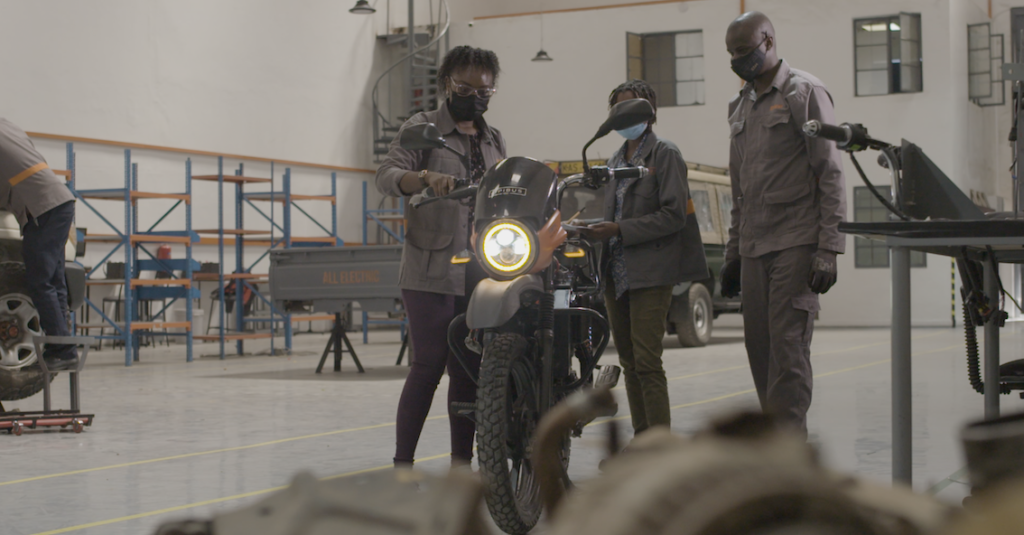
New analysis reveals $1.2 trillion investment opportunity over the next 10 years can be realised by building productive market demand for off-grid renewable energy in sub-Saharan Africa.
Africa needs energy for development and the socio-economic transformation of hundreds of millions of people. Increasing the productive use of energy (PUE) is an important way to unlock jobs, create incomes and deliver social impacts in local communities. Two reports released today by the Powering Renewable Energy Opportunities (PREO) Programme outline the business case for investment into productive equipment and appliances and the scale of the investment opportunity that exists.
PREO is funded by the IKEA Foundation and UK aid, via the Transforming Energy Access platform and delivered by the Carbon Trust and Energy 4 Impact. The programme enables African businesses to harness clean energy to improve incomes, build climate resilience and reduce reliance on fossil fuels. To date it has funded 23 private sector and non-profit enterprises that demonstrate the business and impact case of PUE in multiple sectors. PUE refers to the type of energy demand that generates revenue, increases productivity, enhances diversity, and creates economic value.
The PUE market opportunity in sub-Saharan Africa is significant. The Capital Required to Maximise the Productive Use of Energy in Sub-Saharan Africa report details new analysis that estimates $1.2 trillion over the next 10 years (or $120 billion per year) is required to ensure the necessary level of productive and revenue generating demand is created to improve the economics of off-grid renewable energy. This is significantly larger than the estimated $40 billion required annually to achieve global universal energy access on the same timeline, the report says.
The business case for investment is backed by results as PREO releases the first impacts from the projects being supported via the programme. The Power of the Productive Use of Energy – an Impact Investment Frontier; details outcomes from six pilot projects (in e-mobility and transport, cooling for food and healthcare).
PREO funding has enabled the businesses it supports in sub-Saharan Africa to demonstrate business model viability while gathering critical business information and securing commercial scale-up capital. Each of the projects uses PUE appliances or equipment to create business opportunities and grow local economies, while providing essential services in agriculture, e-mobility transport, and healthcare.
In e-mobility, PREO has demonstrated viable payback for investment over a little more than two years through a daily leasing model of e-motorbikes. Moreover, the projects have created jobs, created opportunities for women, boosted local production capacity, and created supply chain opportunities. Emissions associated with the use of fossil fuels in conventional internal combustion engine motorbikes have also been avoided while running and service costs have come down by 68% and 33% respectively.
Cooling for food companies supported through PREO have shown that off-grid cold storage directly aggregates smallholder farmers and achieves breakeven at a 72% utilisation rate. The cooling units reduce agricultural waste by a third, and client farmers typically pocket 20% more for their produce when using the service. Over six months, client farmers sold 2 550kg more produce, resulting in $11 460 additional income.
In primary healthcare, companies supported by PREO show that by adopting solar, facility downtime can be minimised by as much as 40%, and revenues improved by up to 20% through serving more patients and introducing electricity-powered medical devices and other healthcare services. Investment will attract capital for more off-grid implementation and is a model that may be applied elsewhere.
“Stimulating greater demand for renewable energy and boosting investment in productive use equipment and applications is a critical way to support business opportunities, grow local economies and create jobs in sub-Saharan Africa,” Jon Lane, Associate Director at the Carbon Trust says. “However, traditional forms of investment in energy access often fall short of bridging the gap between the high cost of supplying renewable energy to off-grid communities and building consistent and reliable demand from businesses or households. We hope the release of these reports not only highlights the scale of the investment opportunity available, but also confirms the economics and social benefits that can be delivered.”
PREO is funded by the IKEA Foundation and UK aid via the Transforming Energy Access platform, and delivered by the Carbon Trust and Energy 4 Impact.
Please click on these links to watch short videos about three PREO pilot projects: Opibus, SokoFresh and Access Afya.